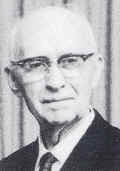The word “theology” comes from two Greek words – theos (God) and logia (oracles, sayings … etc.). So studying theology basically means to learn about God by studying His Word. Studying the Word of God is something that every believer should do, whether they plan on working in ministry or not. Unfortunately many people never go beyond the basics of understanding the Bible. That’s partly a result of a lack of commitment, but I also believe that many people just think that it’s too hard to understand. Studying and understanding the cultures, the maps, the history, the languages, and the religion of people who have been gone for thousands of years is no easy task.
I have been studying the Bible off and on for forty years. When I began as a teenager, I was woefully ignorant. I thought that John the Baptist was the reincarnation of Elijah. (I didn’t know at the time that the Bible teaches resurrection only, and that reincarnation was a false doctrine. There was so much emphasis on reincarnation back in those days that I didn’t know any better.) I thought that Edgar Cayce was a prophet. I thought the story of Samson and Delilah was a fairy tale rather than an actual Old Testament account from the book of Judges. I had so many unbiblical ideas that I had accumulated from years of being around people who were equally ignorant, and I had to unlearn them and begin a slow, methodic journey of reading, reading, and more reading of God’s Word. The more I read, the more questions I had and the more I studied to answer those questions. I started memorizing verses and passages. At one time I could quote the entire books of James, I John, and Jude.
Eventually people began to come to me with their questions. While I may not have considered myself an expert, I had progressed so far beyond the level of most believers that in their eyes I was. It’s like the old saying, in the land of blind people, the one-eyed man is king. I still don’t consider myself an expert, but that’s not the point. The point is to master the basics and arrive at the point where you know the truth enough to where you’re not vulnerable to error. After that you continue on a lifelong journey of growth and greater understanding.
No, I don’t have a degree in Greek or Hebrew. I don’t have a doctorate of divinity or theology. But I have the basics down and I can read English, so if I need to know the meaning of a Greek or Hebrew word I can research it. If I have a question about an interpretation of a passage I can read what the experts have to say about it. If I want to know who authored a book of the Bible or some other background fact I can research that, too.
Theology is basically studying about God. It includes a number of tools, techniques, and principles. The more you know about them and the more you use them the better you get. It’s a lot like playing a musical instrument or learning a foreign language. You stumble around quite a bit at first, but you eventually start to catch on and if you don’t quit you might eventually get to the point where you can do it effortlessly.
One of the goals of Jew & Greek is to help believers educate themselves about the Bible. We have a Resources page for that purpose. These days you can find almost anything you need or are looking for on the internet. It’s so much easier than it was twenty years ago. I used to hunt books in libraries like a man hunting game on a safari. Now I can find what I’m looking for in a few minutes with Google. What a difference!
One thing every Bible student must understand, is that the Bible interprets itself. You should never take one verse and form a doctrine on that. The Bible says that in the mouth of two or three witnesses a thing should be established. (Deut. 19:15; Mat. 18:16; II Cor. 13:1) The thorough analysis of all scripture to derive conclusions regarding doctrine is referred to as “systematic theology”. This takes time and effort, but fortunately most of the work has already been done for us by great scholars from the past. Here’s a link to a book on basic theology from the Church of God.
Another thing to take into consideration is the context of the verse. For example, the Apostle Paul said “I can do all things through Christ who strengthens me.” (Phil. 4:13) Many people quote that verse when they’re taking a test or lifting weights, but Paul was in prison when he wrote that and he was referring to enduring hardship. Paul could deal with difficulties because God granted him the grace to do so, but don’t think you’re going to pass a test you haven’t studied for or bench press 300 lbs. your first day at the gym just by quoting a verse out of its context.
You should also make it a habit to study the background and the culture behind what was written. For example, many people have the idea that the Bible condones slave trading like the United States endured in its past. If you’ll study the Law of Moses, the culture, and the history however, you’ll discover that slave trading was forbidden and servants either entered into servitude as a result of a war debt, a criminal or civil court ruling, or voluntary servitude as a means of survival. The Law of Moses laid down clear guidelines on how servants were to be treated, and slave traders could be put to death if they were caught. (Exodus 21:16)
Good theology and right doctrine are vitally important. Take the Pharisees, for example. They interpreted the scriptures wrong, and that was partially the reason that they didn’t recognize who Jesus was. In John 7:52 they said that a prophet doesn’t come out of Galilee, and yet the record shows that Jonah was a Galilean. The Pharisees also failed to properly interpret bible prophecy, and envisioned a conquering king as Messiah rather than a suffering servant. In Hosea 4:6 God said “My people are destroyed for lack of knowledge.” In Hosea 4:1 we’re told that it was a lack of knowledge of God. If you don’t want to be destroyed then you’d better learn about God, and you learn about God by studying His Word. With modern technology and communication methods it’s never been easier. You can download the Bible on your smartphone or tablet. You can find commentaries for free that would have cost you thousands of dollars and a lot of shelf space in the past. You can even learn how to pronounce Bible names and words with a few clicks. www.howjsay.com www.pronouncenames.com
To whom much is given much is required. (Luke 12:48) This generation has been given so much in the way of Bible study aids, but they won’t help us if we don’t take the time and make the effort to put them to use.

I will conclude with this excerpt from Halley’s Bible Handbook. When I started studying the Bible in 1975 my mother bought me a copy of this handbook to help me understand things. It wasn’t as good as a full set of commentaries but it certainly helped. Halley was a preacher for over half a century, and throughout his ministry he compiled various study aids that he eventually had published by Rand McNally. In his handbook he said:
Everybody should love the Bible. Everybody should read the Bible.
Everybody.
It is God’s Word. It holds the solution of life. It tells about the best Friend humanity ever had, the noblest, kindest, truest Man who ever walked on this earth.
It is the most beautiful story ever told. It is the best guide to human conduct ever known. It gives a meaning, a glow, a joy, a victory, a destiny, and a glory to life elsewhere unknown.
There is nothing in history, or in literature, that in any way compares with the simple record of the Man of Galilee, who spent His days and nights ministering to the suffering, teaching human kindness, dying for human sin, rising to life that shall never end, and promising eternal security and eternal happiness to all who will come to Him.
Most people, in their serious moods, must have some question in their minds as to how things are going to stack up when the end comes. Laugh it off and toss it aside as we may, that day will come. And then what?
Well, it is the Bible that has the answer. And an unmistakable answer it is. There is a God. There is a heaven. There is a hell. There is a Savior. There will be a day of judgment. Happy is the person who in this life makes his or her peace with the Christ of the Bible and gets ready for the final takeoff.
How can any thoughtful person keep his or her heart from warming up to Christ and to the book that tells about Him? Everybody ought to love the Bible. Everybody. Everybody.
Yet the widespread neglect of the Bible by churches and by church people is simply appalling. Oh, we talk about the Bible, and defend the Bible, and praise the Bible, and exalt the Bible. Yes indeed! But many church members seldom ever even look into a Bible-indeed, would be ashamed to be seen reading the Bible. And an alarming percentage of church leadership generally seems to be making no serious effort to get people to be Bible readers.
We are intelligent about everything else in the world. Why not be intelligent about our religion? We read newspapers, magazines, novels, and all kinds of books, and listen to the radio and watch television by the hour. Yet most of us do not even know the names of the Bible books. Shame on us! Worse still, the pulpit, which could easily remedy the situation, seems often not to care and generally does not emphasize personal Bible reading.
Individual, direct contact with God’s Word is the principal means of Christian growth. All the leaders in Christian history who displayed any kind of spiritual power have been devoted readers of the Bible.
The Bible is the book we live by. Bible reading is the means by which we learn, and keep fresh in our minds, the ideas that mold our lives. Our lives are the product of our thoughts. To live right, we need to think right. We must read the Bible frequently and regularly so that God’s thoughts may be frequently and regularly in our minds; so that His thoughts may become our thoughts; so that our ideas may become conformed to God’s ideas; so that we may be transformed into God’s own image and be made fit for eternal companionship with our Creator.
We may, indeed, absorb Christian truth, in some measure, by attending religious services, listening to sermons, Bible lessons, and testimonies, and by reading Christian literature.
But however good and helpful these things may be, they give us God’s truth secondhand, diluted through human channels and, to quite an extent, obscured by human ideas and traditions.
Such things cannot possibly take the place of reading for ourselves the Bible itself, and grounding our faith and hope and life directly in God’s Word, rather than in what people say about God’s Word.
God’s Word is the weapon of the Spirit of God for the redemption and perfection of the human soul. It is not enough to listen to others talk and teach and preach about the Bible. We need to keep ourselves, every one of us, in direct touch with God’s Word. It is the power of God in our hearts.

